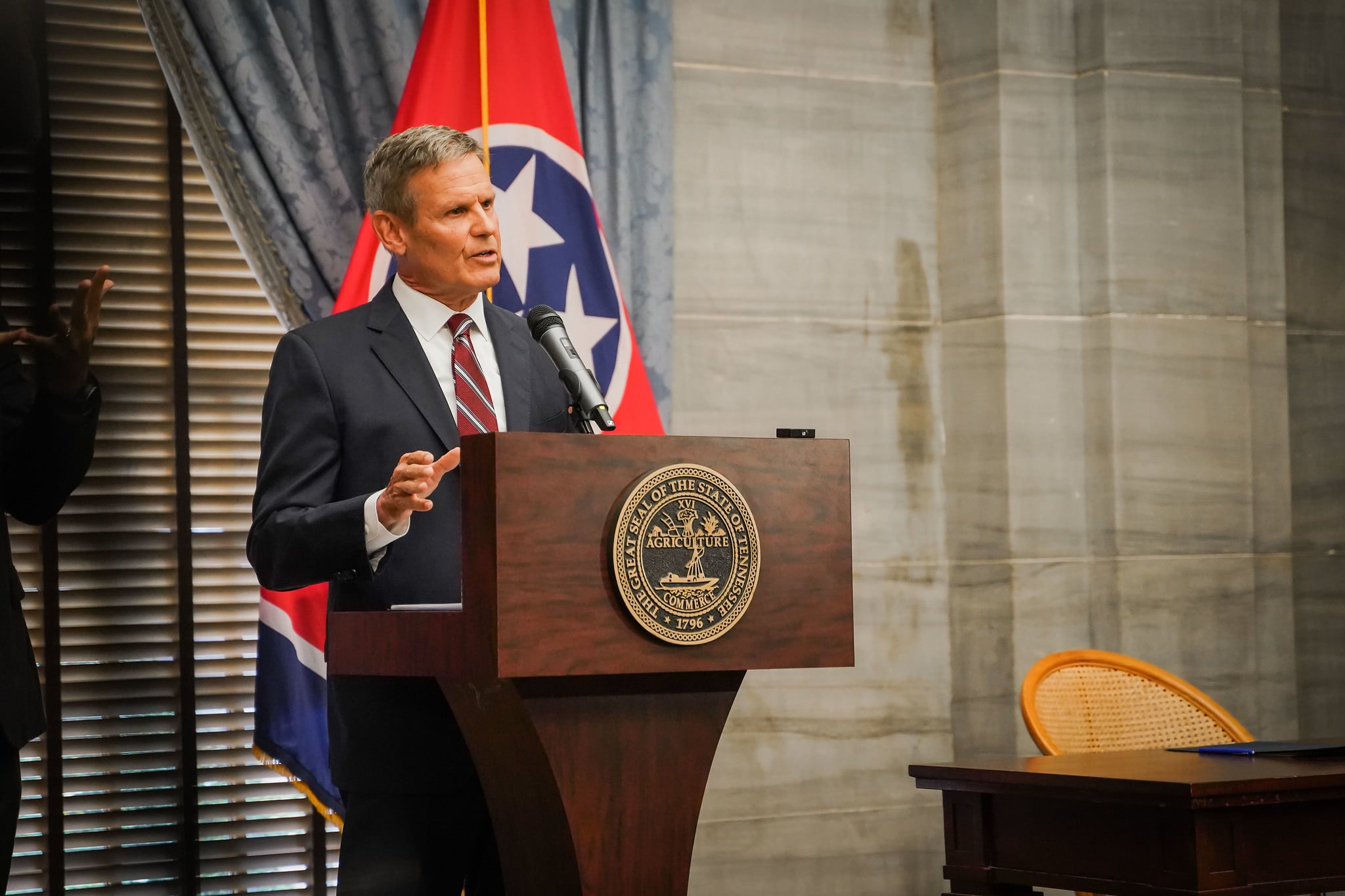Gov. Bill Lee signed an executive order Monday directing Tennessee schools and law enforcement to double down on existing school safety protocols in the wake of a shooting that killed 19 children and two teachers at a Texas elementary school.
But the Republican governor said restricting access to guns is off the table, and he called for continuing the state’s “prioritized practical approach to school safety.”
That means greater fortification of schools to make it more difficult for an intruder to enter them — a policy that former Gov. Bill Haslam, another Republican, stepped up in 2018 after a shooter killed 17 people at a high school in Parkland, Florida.
At a morning news conference, Lee said school communities can expect more unannounced security inspections to make sure all doors are locked so that visitors have only a single point of entry when the new school year begins.
The governor directed the Tennessee Law Enforcement Training Academy to work with the state safety department to evaluate training standards in active-shooter situations, and announced required training for security guards at private schools. He called on state troopers to familiarize themselves with school patterns and school communities in their regions to become more involved in school safety.
And he directed the state education department to seek federal permission to use federal COVID-relief funding to conduct independent school safety assessments that identify needed building upgrades.
“There are things we can control, and there are things we cannot,” Lee said after signing his order. “And one of the things that we can control … (is how) to improve the practical, pragmatic steps to making a school safer.”
Democrats, however, characterized Lee’s order as a photo opportunity that won’t lead to meaningful change.
“I reject the notion that we are helpless against confronting gun violence,” said state Sen. Raumesh Akbari, of Memphis.
“Tennessee families believe in responsible gun ownership, and they support laws that would deny firearms and weapons of war to people who can’t pass a background check,” Akbari added. “That’s not radical. That’s just common sense.”
Lee’s four-page order comes two weeks after an 18-year-old legally purchased an AR-15-style rifle and opened fire on a classroom filled with children and teachers at Robb Elementary School in Uvalde, Texas, before being killed by law enforcement.
And over the weekend, a string of shootings left at least 15 people dead and more than 60 others wounded in eight states, including in Tennessee, where three people were killed and 14 were injured early Sunday morning outside a nightclub in Chattanooga and two people died of gunshot wounds in southeast Shelby County.
Chattanooga Mayor Tim Kelly, who described himself as an “avid hunter” and gun owner, called on Congress to enact “common sense regulations” such as mandatory background checks and a ban on high-capacity magazines that let shooters fire dozens of rounds without having to reload.
But Lee rejected those ideas when asked whether Tennessee would seek to issue its own regulations.
“We are not looking at gun restrictions or gun laws as a part of a school safety plan going forward,” he told reporters.
Tennessee has one of the nation’s highest rates of gun deaths, including murders, suicides and accidental shootings. But the state has loosened restrictions on gun ownership since 2019 under Lee’s leadership. Last year, it joined more than a dozen other states that allow most adults 21 and older to carry handguns without first clearing a background check, obtaining a permit, or getting trained on firearms safety.
Asked whether the rise in gun violence constitutes a public health crisis, Lee called it a “serious and rising problem” and added that his executive order is a “first step” in addressing it.
“If we work together and implement the things that we have put in place in our state and strengthen those things — and we will be strengthening them over the next months — then we can work together to ensure that our schools are in fact safe places,” Lee said.
He added that he wants every Tennessee K-12 campus eventually to have a school resource officer and noted that his 2019 grant program has helped place more than 200 officers in public schools.
Marta W. Aldrich is a senior correspondent and covers the statehouse for Chalkbeat Tennessee. Contact her at maldrich@chalkbeat.org.







